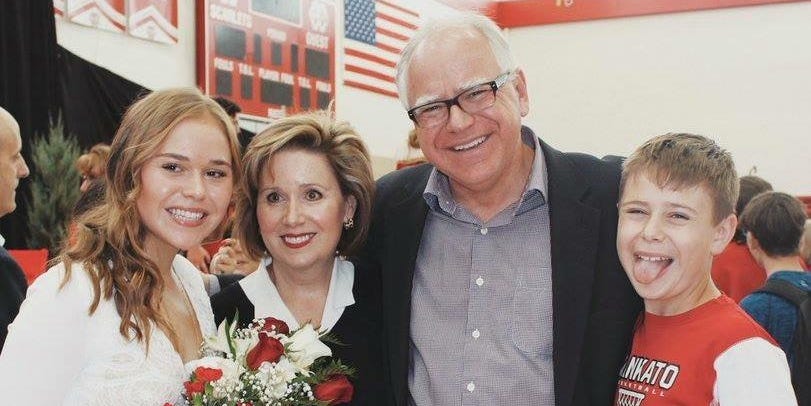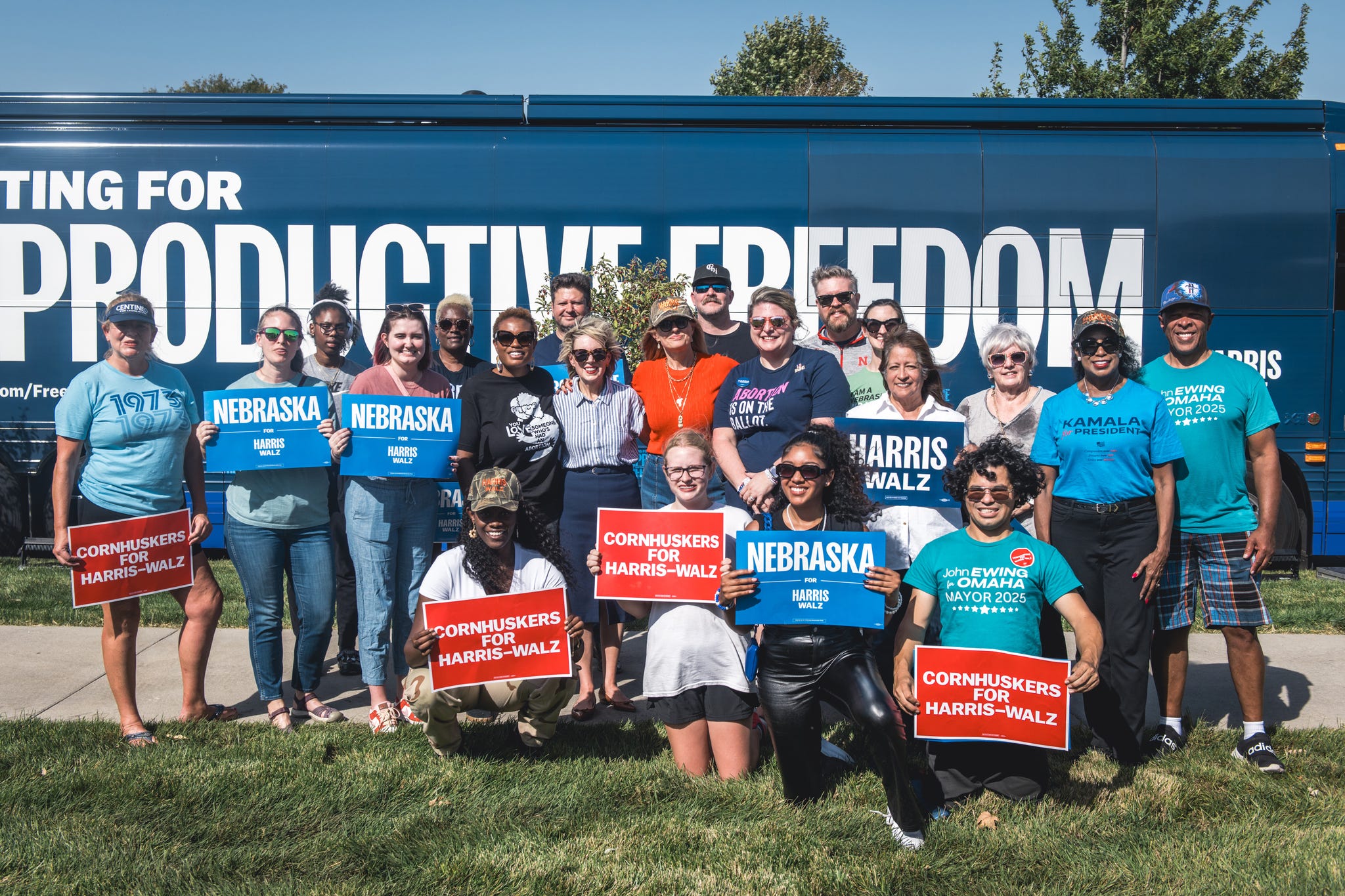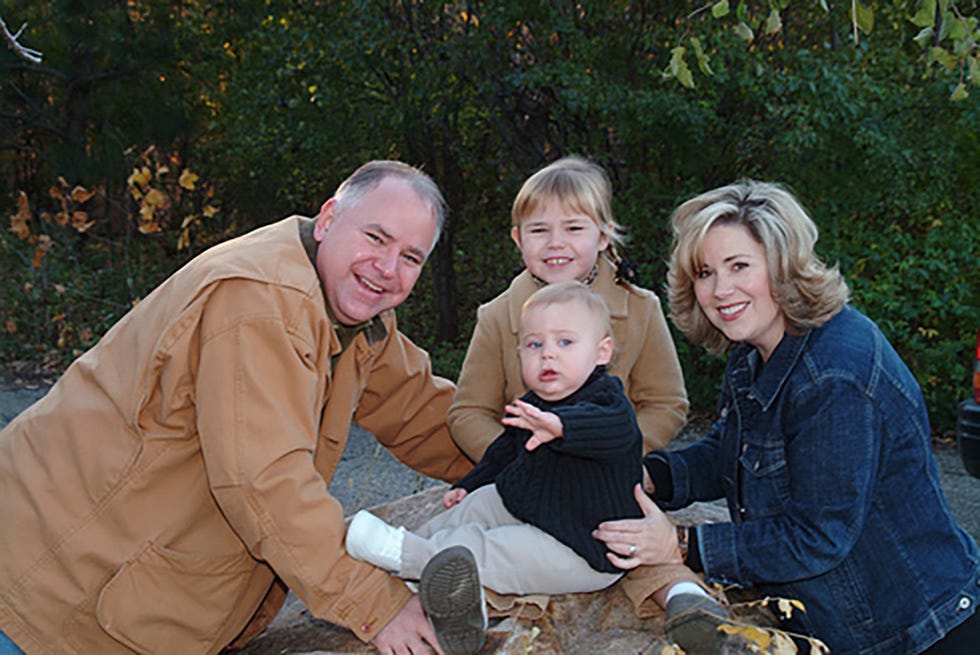It’s never easy to tell this story, and I think all of us who speak about our reproductive challenges wish we didn’t have to. You would think that you’d get used to it, but you don’t. I don’t. Still, it’s too important, and the fight is too real. We have the opportunity to protect our reproductive freedoms. So, I tell my story in the hope that it will empower people to take their own power and change the way forward.
Earlier this year, Tim and I were in his office at the Minnesota State Capitol, getting ready to do a press conference, when we heard the news that the Alabama Supreme Court had ruled that embryos have personhood, which effectively halted IVF treatments in the state as clinics and hospitals tried to figure out what to do. We looked at each other, and we were both just right back there, all those years ago, when we were trying to start our own family and going through our own fertility treatments. We both needed a second. Tim asked me, “Do you feel like we can talk about this publicly?” And I said, “We absolutely do not have a choice.” At the time, we had not talked about it, even with people who knew us well. But this news brought us to our knees.
I’d felt pangs of frustration and anger since Roe was overturned. I don’t think anyone should be telling us when, if, or how to start families. But when the Alabama Supreme Court ruling came down, that was a moment when it was just like, okay, now we’re here. We went through this difficult time for a purpose—to have our children—but there’s another purpose now. We have an opportunity, in leadership roles as governor and first lady, and now on the campaign trail for Kamala Harris, to tell our story. So, we told it all across the country.
Tim and I always knew we wanted to have a family. There was never a time when we weren’t trying to have a family. You think it’s going to be a very natural process. Getting pregnant without help seems to happen for everybody else, so we thought it would happen for us too. We didn’t know of anyone in our family who’d had issues (we think maybe my grandmother did, but we’re not positive). So, when it didn’t happen, we became increasingly concerned.
We were fortunate to have access to the Mayo Clinic in Minnesota, where we began fertility treatments. I was prescribed Clomid, among other treatments we tried, which is a medication that increases the hormones that stimulate egg production in your ovaries and can help you get pregnant. I’d also have to take special shots before an intrauterine insemination procedure that would increase my chances of pregnancy and successful fertilization.
At the time, you did those shots in your backside, so you couldn’t give them to yourself. Tim was not great at giving the shot, so we had our wonderful neighbor Mary, who was a nurse and mother of three, help me. She amazingly worked out her schedule so it aligned with mine—there’s just a small window of time for doing the injection—and I would run home from school, and she would run over to our house to do the injection.
We had complications along the way, even with just simple procedures and processes. So, we took breaks in our treatment—you’re making emotional decisions. If it was a particularly stressful time, like the end of the school semester (Tim and I were both high school teachers at the time), we might take a couple months off. It is a journey. You’re just trying different things, or even cycling through different doctors.
I think the hardest part was waiting to know if the treatments had worked that time, and just hoping so much that it had. When it didn’t work, it felt like a failure. And you’re trying to control your mental health and stay as even-keeled as you can be, because you don’t want to throw off anything in the process by being too upset or too anxious or too excited. There’s always that second track spinning in your mind as you’re going about the rest of your life—for me, that was teaching and taking graduate classes and interacting with friends and neighbors and family. That was hard.
When we finally conceived Hope using intrauterine insemination (IUI), it was right before Easter. We’d been struggling with infertility for years by that point. I remember going in for the procedure at the Mayo Clinic, and the nurse who’d been working with us said to me, “Gwen, this is it. This is your Easter egg.”
Hope was born in January of 2001. Five and a half years later, in October of 2006, Gus was born. Hope is now 23, and Gus just turned 18.
You never imagine that your daughter is going to have fewer rights than you do. And in 21 states that have abortion bans or gestational limits right now, that is the case. Donald Trump is the one who took down Roe. I don’t trust him. And frankly, I’m not willing to put my daughter’s reproductive health in his hands. If he’s elected, I think there will be a nationwide abortion ban.
But I plan on making my voice heard at the ballot box. There’s a clear choice between Kamala Harris and my husband, Tim—who trust women—and Trump and JD Vance, who do not. Everyone has to understand that you have the power to make this choice, and the power to respect reproductive freedom for every single woman in every single family—so that if, when, or how you want to have a family is up to you.
On the campaign trail, people come up to me after I share our infertility experience, and a lot of times, it’s very emotional, but they thank me for telling my story, and they tell me a bit of their story. I think that is so galvanizing. Here we are, building a community of people who understand what reproductive freedom really means in so many different ways. No matter your politics, one thing we can all agree on is that we deserve to make our own choices about our own bodies and families. That is certainly worth fighting for.
Read the full article here







